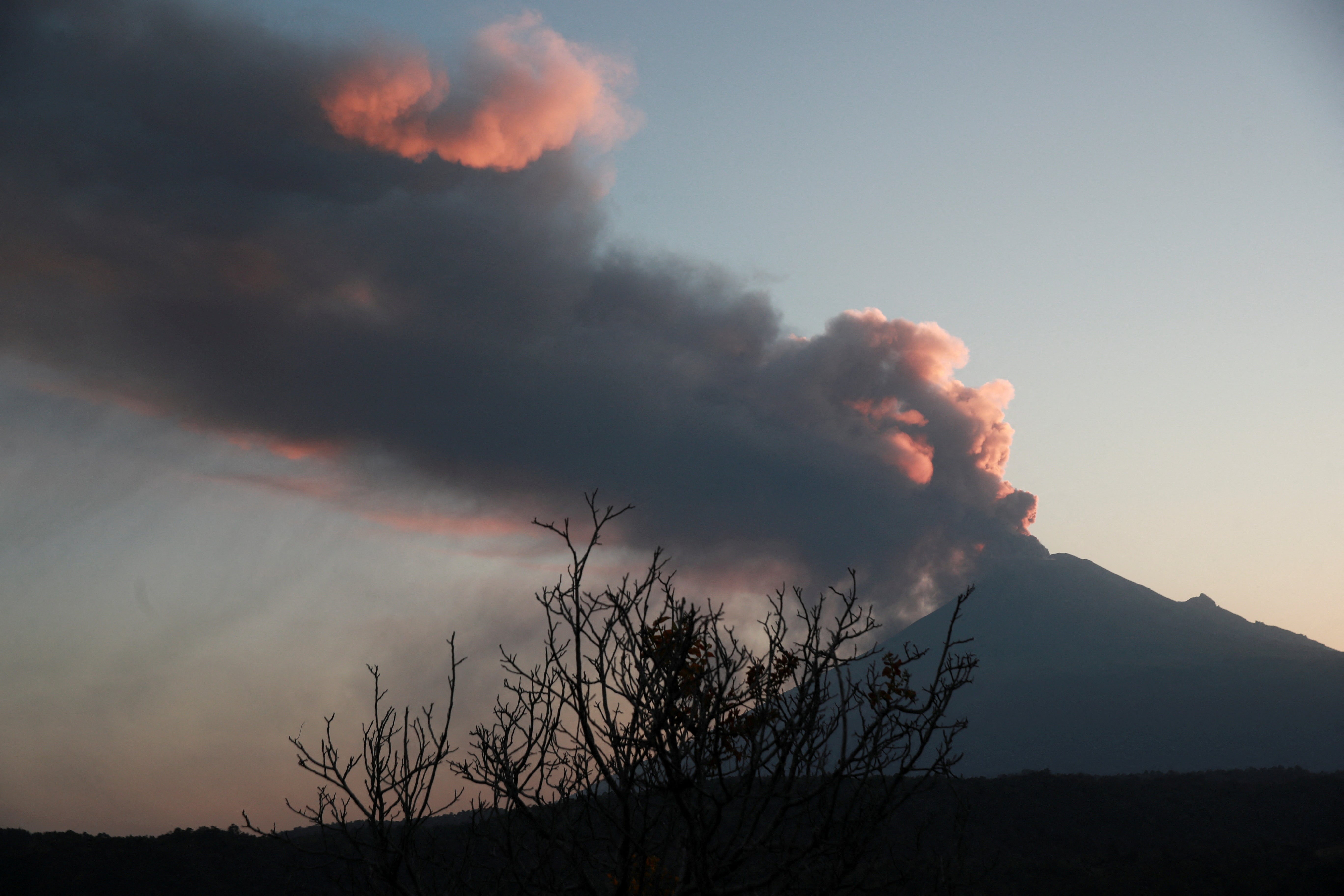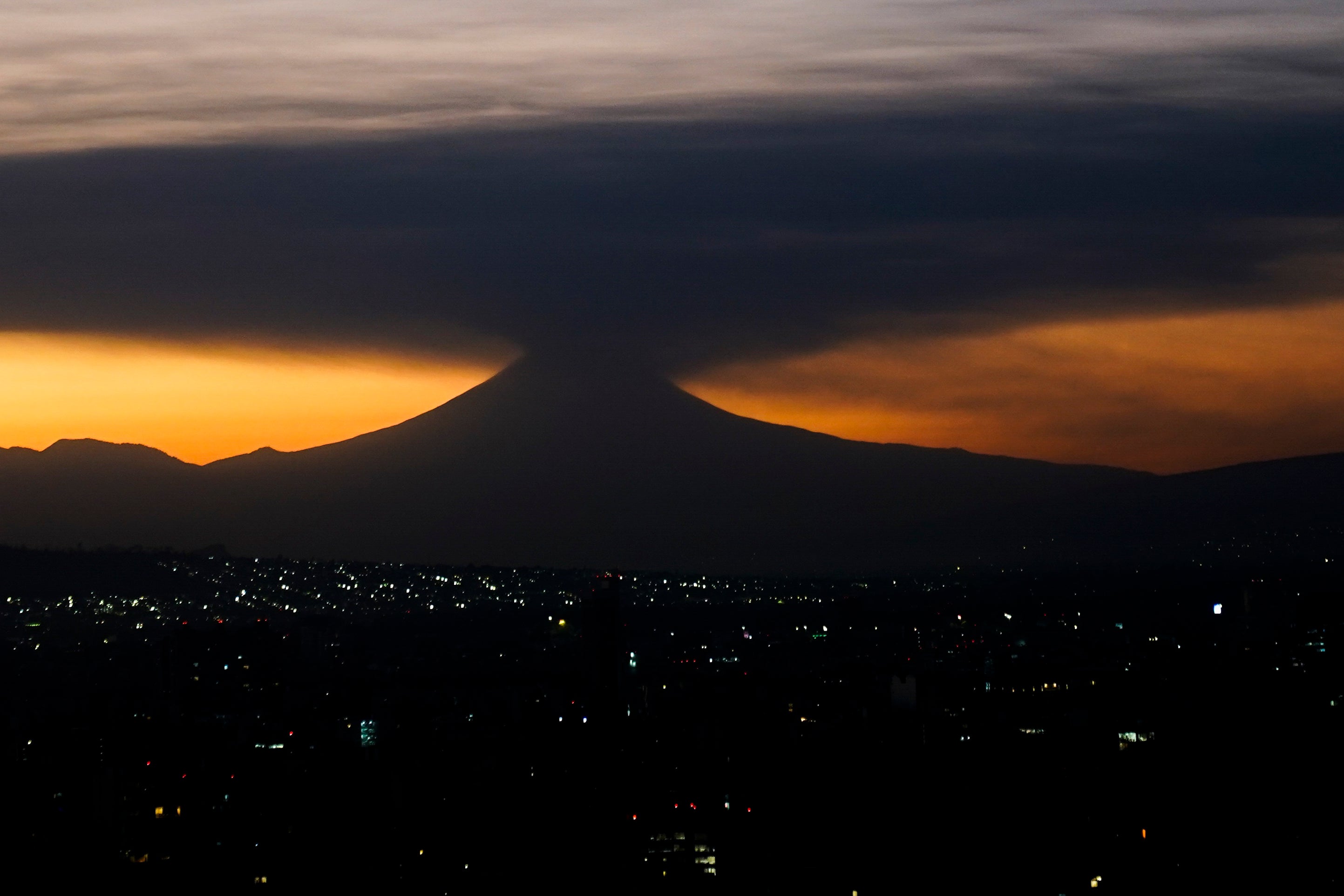Mexico volcano eruption cancels flights as warning issued to tourists
Volcanic ash from the Popocatépetl disrupted flights out of Juárez international airport

Mexico authorities have warned that the Popocatépetl volcano, 50 miles from the country's capital, has erupted 13 times in the past day and urged people to not try to climb it due to debris shooting out of the crater.
Volcanic ash from the Popocatépetl disrupted flights out of Mexico City's largest airport on Tuesday and caused another airport even closer to the volcano to temporarily suspend activity.
Mexico City's Benito Juárez international airport said at least 22 flights were cancelled due to safety concerns after ash was found in some planes during safety checks. Other flights were rerouted to different parts of Mexico.
In Puebla, a city close to the volcano, airport operations were temporarily suspended on Wednesday due to the gas and fumes coming from the “Popo”. The airport said staff was hard at work cleaning up the ash floating down from above.
Mexico City's airport also warned Wednesday that “operations could be suspended” with its website showing a number of cancellations and delays.
“Our priority is safety in operations,” the airport's official account posted on X, formerly Twitter, adding that it is continually monitoring flight conditions.
According to the airport, the ash has produced a slew of safety concerns. Volcanic ashes are especially dangerous for aviation, not only because they reduce visibility but because they can act as an abrasive, damaging an aircraft’s wings and fuselage. In airports, the ashes can coat runways, hurt airport personnel and cause a number of other logistical issues.
The volcano has been active for half a million years and regularly erupts. Last year, large eruptions caused alarm after nearby towns were coated in ash, but volcanologists called the activity “nothing new or surprising”.

Its last major eruption happened more than a thousand years ago.
Elsewhere in South America hundreds of flights were canceled and dozens of others rescheduled in Argentina on Wednesday as unionized air travel workers went on a 24-hour strike nationwide to demand better wages, in the latest sign of social unrest in the South American country.
Most of the country’s more than 50 airports remained open but airlines had canceled hundreds of flights. At the country’s largest airport on the outskirts of Buenos Aires, the Ezeiza international airport, only the low-cost company Flybondi and American Airlines were operating Wednesday.
The state-owned Aerolíneas Argentinas said in a statement that 331 flights were affected by the strike called by the Association of Aeronautical Personnel, the Argentinian Association of Airline Pilots and the Union of Senior and Professional of Aero Commercial Companies.
The strike is expected to impact nearly 24,000 passengers of the state-owned airline alone, with an economic impact estimated at $2 million, according to Aerolíneas Argentinas.
Bookmark popover
Removed from bookmarks